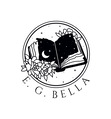E.G. Bella's Blog, page 15
March 25, 2022
Blogger Recommendations Tag
Happy Friday!
I’m back with another blog tag today, which I was again tagged for by the talented Grace Johnson (you can find her post here). This one is all about the blogs and bloggers we’ve found that we’d recommend to others.
I admit, this one does overwhelm me. There are so many amazing blogs I’ve been blessed to come across since starting my website, and it’s impossible to remember or list them all. But I’ve decided that I’m at least going to try and mention the main ones I visit right now, so that you can enjoy them too. Read on for some great sites!
First of all, the rules:
Thank and link back to the person who tagged you. (Thank you again, Grace!)Mention the creator of the tag: Nehal @ Quirky Pages.List the rules.Share one or more bloggers you think fits into each criteria.The people you mention will be considered tagged.Apart from the ones you shared, you can tag other bloggers and notify them.Just have fun!!And now for the recommendations!
(Starting note: just because I list a blog under one of these categories, doesn’t mean it couldn’t fit under other categories too. To avoid listing the same ones over and over again, I’m determined to just name each blog once, under one of the main things I remember it for. And yes, I think I’ll end up regretting that decision but we’ll try, haha.)
A fascinating blog theme:Not sure if this means theme as in content or blog design, but for the latter, I would definitely say Kristianne Hassman’s blog Whimsical Wanderings falls into this category. Her entire site is so clean and polished and just…aesthetic in every way. Actually this applies to all of her content – not just her blog itself. What can I say, I really like her design style? (Plus, her writing itself is also incredible. Basically, just go check it out.)
A lovely home page:I’m going to say Maribeth Barber and Jordyn Hadden at Indie Edits by J. They both have really crisp and polished home pages and clearly ‘advertise’ what their website is about. Again, I’m a sucker for well-done web design (seeing as I struggle in that regard), so a home page doesn’t have to be flowery or artistic for me to consider it lovely.
Great book reviews:Right away, I think of Kristina Hall, Vanessa Hall, Stepping Stones, and Grace Johnson (the same one as above). They’re all so prolific! I always appreciate their in-depth, balanced, and thoughtful reviews, and am so glad none of them shy away from tackling tough subject matter with honesty if it comes up. I’ve been able to add a lot of books to my TBR list thanks to them!
Amazing humor:Funnily enough (pun intended), I’m going to list two Julias for this one: Julia Witmer and Julia’s Creative Corner. Julia Witmer doesn’t post as often currently, but both of these talented bloggers regularly bring a smile to my face. They write on plenty of serious topics, but bring so much joy and wit to their blogs that I always enjoy reading them.
Mind-blowing poems and stories:I would say S. K. Jacklyn and Miles Lawson fit this category very well. While Miles Lawson recently retired from blogging, his writing talent is incredible and I’ve enjoyed reading his stories. I’ve also been blessed to read several of S. K. Jacklyn’s works, and always look forward to more. Her stories are very engaging and full of fun characters and deep themes.
The friendliest:Okay, this is impossible. Every single one of the bloggers I’ve mentioned so far (and the rest that I’m going to mention below) are very friendly and kind people. So don’t be scared of any of them, haha. Several of the first ones that come to mind however are Teen Writers Nook and Saraina Whitney. They are some of the friendliest bloggers I’ve met!
The most consistent:I’m going to say Sara Flower Kjeldson Writes. I don’t know how she does it, but she posts practically every day with a mix of writing advice, indie publishing tips, personal favorites and reflections (I especially enjoy her roundups of what she’s thankful for every month), and other helpful and encouraging topics.
The best at sharing tips:So many of the blogs I’ve mentioned above share amazing tips, but three more that I visit frequently for their writing advice are Scribes & Archers, Pro Story Builders, and Aliventures. In addition to solid tips on just about any general writing topic, they all have lots of advice on some of the most specific, nuanced, and unique topics I’ve seen when it comes to writing.
The talented artist:Apparently I don’t know many art bloggers (any recommendations for me?), but two do come to mind. First, I want to shout out Raina Nightingale at Enthralled By Love. She does her own cover art for her books, and it’s beautiful! And second, I’ll say Mia at Windows. She’s also shared some of her art, and she’s very talented!
Cool site name:Swordmaiden of the King is the very first one that comes to mind, along with Once Upon an Ordinary. There are definitely others, but I love the poetic feel to both of those blog names. And like you’d expect, both their authors write beautifully. I enjoy reading their thoughts and creations, and encourage you to check them out!
The underrated:Hmm, I don’t know how to judge this one. None of the sites I’ve listed are mega-popular, but are they underrated? I don’t know. So I’m just going to use this as a space to mention the rest of the blogs I want to shout out but haven’t yet put under a category. On the list, you’ll find book reviews, poetry, writing advice, thoughts on life, and more!
~ Thoughts From a Stumbling Saint
~ Quote, Unquote
~ Discipleship With Joy
~ GraceBought
~ Hailey Huntington
~ Tiffany Price
~ Write For the King
~ A Writer’s Path
~ By Madelynn Orion
~ Books By S. R.
~ A Walk Down Chamomile Lane
Wow, that was even harder than I expected, which is saying something! I really wish I could list every blog I read from because they’re all so good. So if we’ve interacted and I didn’t mention your website, my scatter-brained…brain apologizes, haha. And I definitely recommend checking out every blog I’ve mentioned here (all of which are now tagged!).
What are some of YOUR favorite blogs? Have you heard of any of these? Were any new to you? I’d love to hear from you, so let me know your thoughts in the comments!
Recent Posts:
Blogger Recommendations TagWriting Advice: Remember All the Senses (Not Just Sight)The Bookworm’s Tag (Take 2)March 23, 2022
Writing Advice: Remember All the Senses (Not Just Sight)
Happy Wednesday!
Today’s writing advice is something that I often need to be reminded of – which is remembering to use all of the senses while I write.
For reference, we as humans have five basic physical senses: sight, sound, smell, taste, and touch. These are our ‘tools’ for experiencing the wonderful world around us. The more of them we’re missing, the more difficult everyday life can be.
This post can go two ways, and while I’m mainly referring to using all of the senses in our descriptions when we write fiction, I’d also like to first touch on how important it is to engage as many senses as possible in the actual act of writing itself.
When it comes to actually sitting down and writing, the largest two senses that I use are sight (to see what I’m typing) and touch (to sit and type). Everyone has different writing processes (for ex. some people write through dictation and use their voices more than their fingers), but in general, those are the two most used senses while writing.
I usually overlook the other ones, but recently I’ve been reminded of how helpful it can be to engage some of the lesser-used senses.
Adding sound into my writing routine through instrumentals and custom playlists helps me focus on my story and get drawn into its mood. Adding smells like a scented candle or essential oils can help train my brain into recognizing that it’s time to write. Some people add taste through a special snack or drink they only have during their writing sessions.
Any repeated association you have with a sense during your writing is going to help build a habit. And habits almost always lead to more productivity! They help tell our brains that it’s time to buckle down and do that specific thing associated with the habit. It’s easier to get into a flow state and focus.
Of course, there’s such a thing as going overboard, and if you’re spending more time completing your writing routine than actually writing, then maybe there are things in your routine that don’t need to be there. But everyone’s ideal process is going to look different, and that’s okay! What’s important is that it works as best is possible for you.
So if you’re stuck in a rut with your writing routine, you can always try and find creative ways to engage senses that you’re not currently using. Oftentimes, that can shake things up enough to get your creativity flowing and your mind engaged again. It’s worth a try!
And it’s one way that using more than just the ‘common’ senses can help with our writing: by using them to create a solid writing routine and think outside the box. But I also want to focus on them when it comes to our prose itself.
Because humans have all five senses, and our characters are supposed to think, feel, and act as humans (or if your characters aren’t technically human, bear with me a moment), then our characters should also use a variety of senses. This seems obvious, but is easy to forget when writing description.
I often catch myself falling into the rut of merely describing what my character sees. I describe how another character’s face looks, how the sunset looks on the water, how the grass is blowing on the hillside…and that’s good! Sight is a huge – arguably the largest – part of description.
But just like real life is vivid and expansive and experienced through many senses, it should be the same way in our stories. We want our stories to feel as real as possible to those reading. And so they must feel real to our characters as well.
And that’s the key. What does real life look, sound, smell, taste, and feel like to your character? Maybe your characters aren’t human, but then what senses do they have? Maybe your characters don’t have the use of all their senses (ex. blind, deaf, or paralyzed), but then which ones do they still rely on? And have those senses sharpened as a result?
Every character is going to use their senses a little differently. Some will naturally pay more attention to sounds (perhaps they’re musically-talented), but place lower trust in their sight (are they colorblind?).
Others may associate certain smells very strongly with certain things and notice them more easily (did their mother wear that perfume and now they think of her every time they’re around roses?).
Still more may put far more effort into critiquing tastes than many characters would (maybe they grew up in a culinary-focused family).
Whether writing in first-person or third-person perspective, it’s always useful to think through who our current narrating character is. What have they experienced? What has their life been like so far, and what’s their background? What sorts of details are they more likely to notice, and with which senses?
The more senses we use in our descriptions, the more vivid our stories feel. When we not only describe seeing the grass moving, but feeling the chilly breeze blowing it, smelling the salt from the ocean nearby, hearing wind whistle past us, and maybe even tasting the fresh air.
It’s like every sense we use is a color. And the more colors we’re able to smoothly paint with, the deeper and more nuanced our stories will appear in our minds’ eye.
To continue with that analogy, it’s definitely possible to go overboard with senses here as well and muddy our stories. We don’t need long descriptions of what your character is feeling from every sense in every paragraph. And the descriptions from each sense don’t need to be even (most of us naturally hear a lot more than we taste, for instance).
But we do need a variety. Give us those details when we’re entering new areas, or when there are important details you want to highlight. Take a moment and really imagine the place that your character is. What do they see? If they close their eyes, what can they hear? Are there notable smells present? Do they touch something specific? Are there any tastes that linger on their tongue?
Even if we don’t end up using every single one of those details in our stories, it’s beneficial for us as writers to have them in our minds as well. The more real our story world is to us, the more authentically we can write about it, and the better readers can then picture it.
It really does come down to the details. Whether those details are seen, heard, felt, smelled, or tasted – it requires a vivid variety of them to make a story come to life.
Remembering this has really helped my writing – especially when I struggle with too short of pacing and not enough description. I might run out of things that my character sees to describe, but I can use other senses and paint a more vivid picture. Or maybe I have enough description, but it’s lacking, and the picture it paints isn’t very immersive. In that case, I can try swapping out some details using other senses, and it almost always fixes it.
Maybe this isn’t ever an issue to most writers, but to me, being given this bit of advice has made enough of a difference in my writing – my descriptions particularly – that I keep a Post-it with the five senses on my desk to remind myself.
When I’m struggling with descriptions or with feeling immersed in my story world, I can stop and ask, what details am I leaving out? What senses am I forgetting to use? How could my character be experiencing their world that I’m disregarding?
The result is a more genuine, vivid story for me to write about, and readers to dive into.
So, what are your thoughts on using all the senses while you write? Do you tend to use some more than others? Are there ones you usually forget? I’d love to hear about your writing experiences, so feel free to tell me about them in the comments below!
Recent Posts:
Writing Advice: Remember All the Senses (Not Just Sight)The Bookworm’s Tag (Take 2)2022 February Wrap-UpMarch 18, 2022
The Bookworm’s Tag (Take 2)
Happy Friday!
If you’ve been reading my blog for a little while, you might recognize this tag. I previously answered Vanessa Hall‘s questions back in September of 2021, right here. And today, I’m back to answer some more book-related questions!
This time, I was tagged by the lovely Grace Johnson (you should definitely check out her site)! Thank you for the fun questions, Grace!
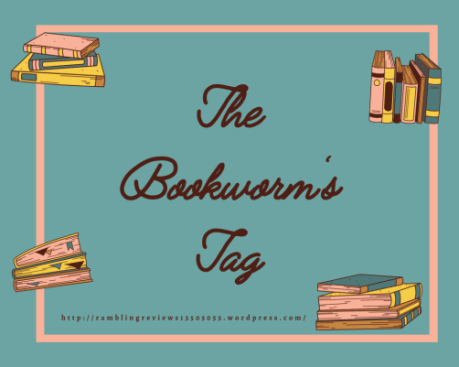 The tag graphic!
The tag graphic!Here are the rules for the tag:
Thank and link to the blogger who nominated you (Thank you once again, Grace!)Include the tag graphic in your post.Answer the ten questions the blogger asked.Nominate between five and ten bloggers.Ask your nominees ten book-related questions!Don’t feel bound to these rules.(Most importantly) Have fun!And now on to the questions!
1. Bookmarks…or dog-earing? (I dog-ear, so I won’t judge.)
Actually neither! I just stop reading and go back to find my place later. But between those options, definitely bookmarks. If someone prefers to dog-ear, that’s up to them obviously, I just can’t make myself do it haha. Even though I accidentally bend pages all the time, I still feel like a criminal if I do it on purpose.
2. Ever spilt food or drink on a book? “YE-E-ES”
“YE-E-ES”Unfortunately yes, and I always feel so bad when it happens (the GIF above might as well be footage of me). It’s such a hard choice when during meals alone is one of the only chances I get to read. I’m clumsy too, so it’s definitely a risky decision. I’ve learned that if it’s a book I’m borrowing, I don’t even attempt it. Too dangerous!
3. Have you ever read an entire book (not a short story) on your phone, tablet, or computer?
I have! It’s not my preferred form of reading though, so I don’t do it unless I have to. I much prefer paperback copies to digital (I also spend enough time writing and working on my computer that I prefer most of my downtime to be away from a screen). But for things like beta reading or reading a friend’s book on Google Docs, I’ll take any opportunity I can get!
4. Do you box or wrestle with your books? (Hit them or throw them down when a character does something stupid or the hero dies?)
I may feel like it every once and a while, but nope! The closest I’ve ever come is just putting the book down for a while and coming back to it later (maybe). Again, I just don’t like causing damage to books, even if the story may deserve the abuse haha.
5. Ever written to or contacted your favorite author(s)?
I’m happy to say yes! Not all of them – although I still plan to continue reaching out to more over time – but so far a few of the authors that I’ve contacted (and received responses from) are Daniel Schwabauer, Allen Arnold, Jill Williamson, Stephanie Morrill, and Nadine Brandes. And does it count if many of my favorite authors are also friends? I’m going to say yes.
6. What are your favorite book covers?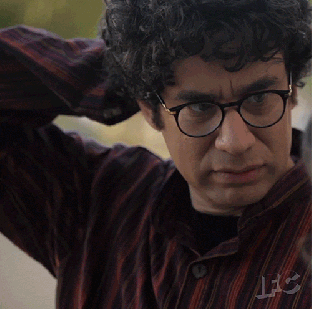
I actually just got to answer this question in this post! When it comes to book covers, I don’t have one particular style that I like more than others, so it’s hard to choose favorites. Here are some that I do really like though…

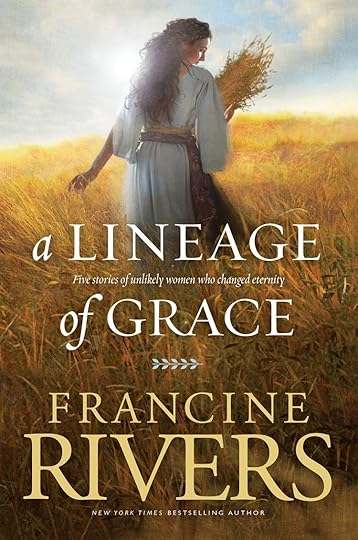
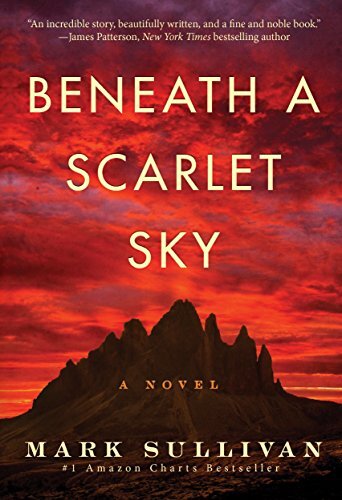
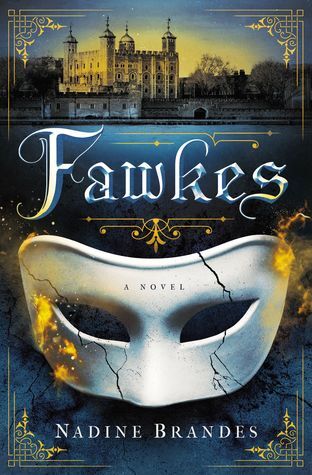
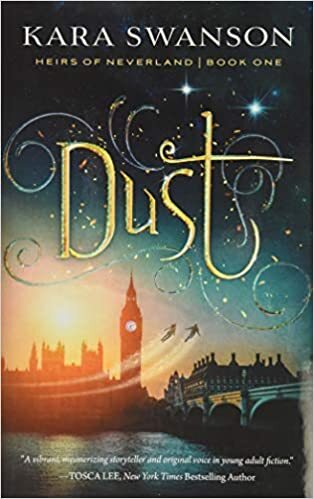
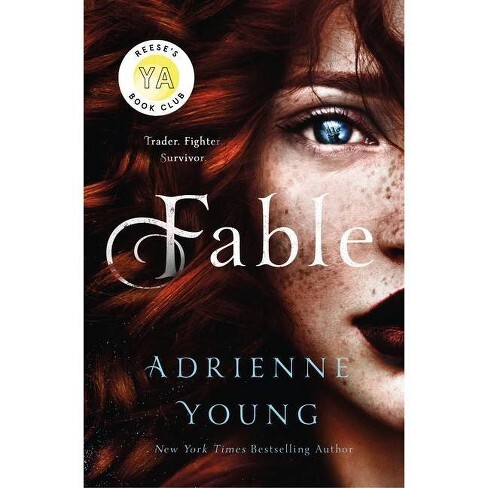
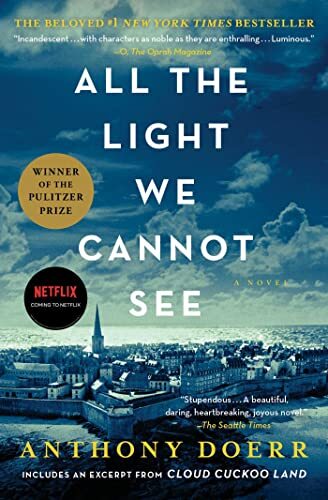 7. Worst. Cliche. Ever?
7. Worst. Cliche. Ever?
Okay, so a while ago, I talked about some of my biggest fiction pet peeves – one of which is portraying women in fiction as ‘strong’ merely by making them stereotypically masculine. You probably can think of some instances like this, where the main female character is very physically strong, ‘tough’, maybe crude, and generally just makes all the men around her seem pathetic and inferior. I can’t help but cringe every time.
Being physically strong, or acting macho, is not the only way to be strong. And in fact, if a female is only ‘strong’ acting masculine, than is it really female strength in the first place? Males and females are different, and those differences include different strengths. None are better than another. I’d love to see far more female characters that the authors allow to be strong just by letting them be themselves. (Okay, I’ll stop my rant for now, haha).
8. What’s the most you’ve ever paid for a book? How about the least (not free)?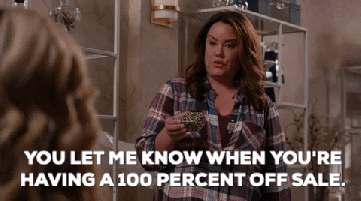
I don’t know specific amounts, but in general, I’m pretty cheap. I’ve bought most of my books from thrift stores and when they’re significantly on sale (which is one reason I’m usually late reading new releases). The exception is occasionally when an author I want to support has come out with a new book. Then I believe the most I’ve spent is probably $25 or so. The least amount would be at said thrift stores, for about $1.
9. Can you read in the car?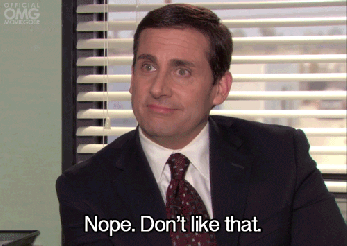
Not even for a little bit. I get super motion sick – where I can’t usually handle swings or rocking chairs – and reading in a car just makes it way worse. Thankfully, I don’t usually have that issue when I drive, but…obviously….I can’t read while I drive. I’m admittedly a bit envious of people that can work through book after book on long car rides, haha.
10. Do you sell your read books, donate them, or keep them forever?
This is a question I’ve been asking myself recently! So far, I like to just keep them. I do a lot of re-reading and lending my books to others, so it makes sense to store them for now. The exception is if I don’t like it, don’t want to recommend it, and don’t want to ever reread it. Then donating works well (unless, it’s really awful content, and then I feel bad even donating it…still undecided on what to do in that case).
I’d like to tag:
1. Kristina Hall
2. Vanessa Hall
3. Jordyn Hadden @ Indie Edits By J
4. Raina Nightingale @ Enthralled By Love
5. R. M. Archer @ Scribes & Archers
6. Maribeth Barber
7. Kate @Once Upon An Ordinary
8. S. K. Jacklyn
9. Lauryn Trimmer @ Pro Story Builders
10. …and YOU!
Here are my questions for you:
1. When is your ideal time to read?
2. Standalones or series?
3. Do you ever skip around while you’re reading?
4. What’s the best book you’ve read so far this year?
5. Do you have a favorite story trope? If so, which one?
6. What color are most the covers of the books you own?
7. Do you ever read nonfiction books? How often?
8. What is your least favorite genre? Favorite?
9. About how many books do you usually read in a year?
10. Which of these three are most important to you: plot, worldbuilding, or characters?
Well, thank you for joining me with this fun tag! I enjoyed answering these questions, and I hope you enjoyed coming along for the ride. Thanks for being a fellow bookworm!
How would YOU answer these questions (either the ones I answered, or the ones I’m asking)?If you have a blog and want to participate, consider yourself tagged! Or if you’d rather let me know your thoughts in the comments below, I’d love to hear from you!
Bonus question: if you couldn’t tell, I had fun experimenting with GIFs in this post, haha. What are your thoughts? Are they distracting and out of place? Or do they add to the lightness and humor of these ‘Fun Friday’ posts? Let me know what you think!
Recent Posts:
The Bookworm’s Tag (Take 2)2022 February Wrap-UpThe Reading Habits Book TagMarch 9, 2022
2022 February Wrap-Up
Hello and happy Wednesday!
Today’s post brings another summary of the past month of my life – with writing progress reports, reading accomplishments, and general updates!
So without further ado . . .
General UpdateSpring is finally coming! Although the general muddy messiness of this time of year is never my favorite, I far prefer it to snow and ice. In addition to the increasing warmth, I’m especially enjoying the earlier sunrises, the chances to take more walks, and getting to hear the birds singing again. I’m hopeful that we’re finally past the hardest part of winter!
January left me in a very good place – motivated, organized, and on-track to keep up with my many goals. February came along and tried its hardest to undo all of the above, haha. (For example, I’d originally meant for this post to come out last week…) I see now that I was being a bit too ambitious last month, considering some of the personal events that were coming up. But it’s okay. For me, a huge part of learning balance is learning to accept when God’s plans are very different than mine. Some months I’ll be productive in my eyes, other months less so. But as long as I’m pursuing Christ, I should trust that my time has been well-spent.
And I think it has been. Though I didn’t have as much time for my own pursuits as I anticipated, I got to do a lot of wonderful things and spend good time with loved ones. Just some things I was especially thankful for in February included: sunrises, getting stronger, lactose-free cottage cheese (I haven’t had cottage cheese in at least a year!), laughter, Bible study, tubing, skiing and ice skating for the first time, hymns, finding out that I will be able to attend a writing conference in-person come June, and getting to work on Cabin Girl.
Fiction WritingI wrote 7,338 words this month! Currently, I’m working on fixing up my narrative voice for Cabin Girl, and polishing up the final story, so I got this number by comparing the number of words in the first three chapters after I worked through them to those same chapters before I started. I trimmed words, added words, moved words around . . . it’s been a larger process than I thought, but I’m much happier with how those chapters are now. (Also, I did have one day of writing several pages of another story so I wouldn’t lose the idea for it.)
My goal for February was to finish rewriting Cabin Girl. Did I reach that goal? Honestly, no, I didn’t. I only finished the first three chapters. But I am honestly still thrilled. That’s much more progress than I’ve made in months, and I can tell that there’s genuine improvement. In addition, the third chapter’s wordcount is equivalent to about three normal chapters (not sure if that’s good or bad, haha), so it’s a big accomplishment. So while I’m not as far as I’d hoped to be, I’m making consistent progress – and that’s encouraging after so long of being stuck on this beloved story. March is going to be another pirate-intensive month!
On the BlogPreparing February blog posts back in January was so helpful! With very little effort from me, I published 9 posts last month. Now to finish planning content for the rest of March…
(And a fun tidbit: February was my highest month for average views per day yet! Each month of 2022 – even though we’ve only had two so far – has brought that number higher. I’ve really enjoyed interacting with more readers!)
Here are the posts for February (just click on the titles to read them):
~ 2022 January Wrap-Up
~ 10 Quotes About Purity
~ 5 Tips for Finding Motivation to Write
~ God of the Little Things
~ Music While Writing?
~ Writerly Resolutions Blog Tag
~ How (NOT) to Succeed as a Writer
~ The Bookish Blog Tag
~ Why I’m Glad I Took a Gap Year
With fiction being a higher priority last month, reading definitely slowed down. But I still managed a couple books – one fiction, and one nonfiction.
~ The Atonement Child by Francine Rivers
(Deep, intricate, and moving, I enjoyed this story – even though the subject matter was definitely darker. I especially liked the realistic portrayal of most of the characters, and how Rivers showed the way that one life can affect so many others. I stayed very interested.)
~ Not Yet Married by Marshall Segal
(This held a lot of very valuable insights about singleness and dating from a Christian perspective. Although I think it could have been split into two smaller books – one on singleness and one on dating – the wisdom inside is very helpful, and I appreciated it.)
I’m also continuing to work through The Sacred Search by Gary Thomas. I’m reading one chapter per week, and am currently working on Chapter 8 of 18. I recommend it so far!
Looking ForwardThankfully, I’d already planned to take a bit more realistic approach to March, and my experience with February only confirmed that idea. There are more events and family obligations this month, so I’m going to try and keep a good balance between those things and my personal goals. We’ll see how it goes, but I’m praying God will open my eyes to the right ways to split my energy and attention.
Non-writing highlights this month include: helping family move (we already did this and it went well!), teaching three more classes, two family birthdays, youth group, attending a play my siblings are in, a church worship event, more work at both jobs, hopefully reading a couple more books, Bible study, making prayer more of a habit, and continuing to work at getting stronger physically.
Again, my writing focus this month is fiction. I have good momentum for Cabin Girl going and think it’s possible to make a lot of progress, not only with the final edits, but with the cover, formatting, and publishing prep as well. My ideal publishing date is going to be shared with my street team-ers soon, but the common knowledge version is that I’m working hard to not publish any later than May. I’m also going to try and get at least a few blog posts out, and continue to grow my Medium audience. Thanks for sticking around and joining me on my March journey!
What was YOUR February like? What kinds of things did you get to do? If you have a progress report on something, or books you read and would like to share, go ahead and let me know in the comments! And while you’re at it, feel free to include what you’re looking forward to and/or hoping to accomplish in March! As always, I’m excited to hear from you!
Recent Posts:
2022 February Wrap-UpThe Reading Habits Book TagWhy I’m Glad I Took a Gap YearMarch 4, 2022
The Reading Habits Book Tag
Happy Friday!
And also, happy National Grammar Day! (Everyone’s favorite holiday, right?)
I have yet another blog tag to share today, and this one looks like a really fun one! (Which is also my way of justifying my theft of it, haha). I found this tag on Quirky Pages, and as she technically did tag anyone who wanted to participate, I’m going to say it counts.
It seems like something as simple as reading would be pretty straightforward, but I’m always fascinated by the differences in how people read. I personally think my reading habits are pretty boring, but I guess we’ll see. And if you feel like talking about your own habits, stay tuned to the end, because I’d love to learn about yours too!
Do you have a certain place at home for reading?Nope, anywhere is fair game! My house and bedroom have changed enough over the years that I’ve never had one set ‘reading spot’. My bed, my desk, the dining room table, the couch…anywhere without a lot of other stuff going on. If I can focus, I’m happy, haha.
Bookmark or random piece of paper?Actually, neither! Honestly, I’ve only used bookmarks on special occasions. Most of the time I just stop reading and go back to find my place the next time I pick it up. I think it’s part laziness (because I rarely have good bookmarks around), and partially me figuring that if I don’t remember where I was in the story, I should go back until I remember and reread anyway.
(That said, my most unique bookmark usage was a movie ticket stub. I forgot I stuck it in the book and found it again rereading about four years later! And no, I wasn’t reading during the movie, haha. It was just the nearest material later, at home.)
Can you just stop reading or do you have to stop after a chapter/a certain amount of pages?Usually I can stop anywhere. If I’m not under time pressures, I’ll try to stop at the end of a chapter or scene break just for the sake of it though. And if it’s a rare book that’s keeping me thoroughly engrossed and I have the time, I’ve been known to read the whole story in one sitting. No need to find a good place to stop, haha!
Do you eat or drink while reading?Only if I have to – meaning if the only time I have to read that day is during meals (and I’m by myself for them). And in that case, I still only do drinks in a closed-top water bottle because I’m way too paranoid about spilling. But if I have time to read that’s not during meals, I prefer to just give the book my full attention, and not even risk a mess.
Multitasking- Music or TV while reading?It depends on what I want to focus on. If I want to remember the book and other media, then no. I just can’t focus on that much stimulation at once. But if I don’t care to focus on the movie or music, I can usually tune them out and read with it in the background. In general though, when I’m reading, I prefer just to read – and stick with some soft ambience music if I’m feeling fancy.
One book at a time or several at once?Several. I usually have one fiction and one non-fiction in progress at any given time, although often I’ll have more than that. It just depends on which books they are, and also whether I’m supposed to be reading certain ones for learning, in addition to the ones I choose for myself. I don’t usually have a problem switching between books.
Reading at home or everywhere?This is tricky. Home is my preference, but I also do read other places too. Reading in moving vehicles makes me carsick however, and if I’m away from home to do something with others, then of course I’m going to be fully present with them, and not read. So it’s mostly just if I’m waiting on someone. And as I’m mostly keeping a full schedule and driving myself places nowadays, the majority of my reading is done at home when I make time for it.
Reading out loud or silently in your head?Unless I’m trying to edit one of my own novels or reading to little siblings, I read in my head. I read in my head much faster than I do out loud, and I also tend to go through books while others are around and can hear me. So, for me, it just works better to read silently.
Do you read ahead or even skip pages?Guilty. I’ll confess to skipping pages of description or even some pages at the beginning of a story if it’s not holding my attention but I want to read the book anyway. Typically, I’ll get glued partway through, and then afterward I can go back. But yes, I’ve definitely been known to skim or skip ahead if I’m not staying interested. I’ve also been known to read the ending of a book if I’m trying to decide whether to get it from the library, haha.
Breaking the spine or keeping it like new?Nope, I haven’t ever purposely broken the spine of a book. I know books are only things, but I still can’t make myself damage them like that. I’ve read too many where the spines have been cracked and the pages are falling out and . . . to me, it’s just a frustrating mess at that point.
Do you write in your books?Similar to the last question, I have a very hard time making any changes to books. I’ve never written in any fiction books (although I am still considering scribbling out some swear words in a couple so I can lend them to younger siblings), and I’ve only highlighted in one non-fiction book. And the only reason I let myself do that was because I had two copies of the same book, so I felt like it was ‘safe’, haha. I don’t have anything against people who write in books, I just haven’t found a good enough reason to do it myself yet.
Technically, I think I’m supposed to tag more people, but because I love hearing about others’ reading habits, I’m going to leave this open for anyone and everyone who feels like sharing. So if you want to join in, I officially tag YOU! And if you don’t have/don’t want to use a blog, feel free to just let me know your answers in the comments. I’d love to hear from you!
Recent Posts:
The Reading Habits Book TagWhy I’m Glad I Took a Gap YearThe Bookish Blog TagFebruary 27, 2022
Why I’m Glad I Took a Gap Year
What someone chooses to do after graduating high school draws many opinions.
Relatives, friends, and even random strangers — while they might mean well — all have their own thoughts on what it means to be a good member of society.
The (usually well-meaning) judging starts even before we graduate, with the dreaded question, “So, what do you want to do after high school?” I don’t think most people intend to be overwhelming. It’s just something you ask.
But the trouble is that you can never please everyone.
Some people want to hear that you’ve been accepted into a prestigious college and are aiming for a spectacular career.
Others wonder why you haven’t just found a job with more hours yet, so you can start learning to work hard.
And if you don’t know where you want to go with your life yet?
Well, that was me after graduating high school. And I can say from experience that the reactions aren’t always pleasant. At best, there’s often polite disappointment. At worst, sometimes outright beratement and condescending ‘advice’.
I didn’t know what I wanted to do immediately after high school. So many interests rattled around in my head that I just couldn’t seem to settle on one to pursue. College? Careers? How is anyone supposed to figure that out before legal adulthood?
Though I enjoy learning and the idea of college intrigued me, the price tag for something I may not have ended up using did not. And I already had a job. But was it right to work at turning into a career? What other options were there?
At the advice of my parents, I ultimately decided to not decide. Not yet.
I would take a gap year, and give myself the chance to try some things out — without feeling pressured by others’ expectations. Did it mean staying at home an extra year? Yes, and I was blessed to have parents that not only allowed but encouraged it. I’m glad I followed their nudges.
And here’s why:
I Figured Out What I Like to Do With My TimeHigh school takes up a lot of time — who knew?
And even though I was able to tailor extracurricular activities to my tastes, and discover many of my hobbies and preferences, I didn’t truly figure them out until there was suddenly a huge school-shaped hole in my schedule.
Turns out, I only enjoyed some hobbies because they were what was available to me at the time, or because they meant I got to see friends. I may have considered them large parts of my identity then, but surprisingly, I wouldn’t continue them now.
And on the other hand, I got to try new things that I didn’t have time for before. Some were short-lived, others continue to be a routine part of my life. But the trying is a worthwhile journey in itself.
As I tried things out, experimented, and figured out where my passions actually were, I’ve been able to construct a valuable blueprint full of insights into who I am and what I might continue to do with the rest of my life.
I Learned More About Who I AmThey say knowing yourself is key, and my gap year gave me a chance to do just that.
When you’re experimenting and trying new things, you can’t help but learn about yourself in the process. Not just about what you like to do, but about who you are as a person.
Turns out, I’m not very patient, but I’m braver than I thought. Starting and keeping lively conversations is a skill that doesn’t come easily to me, but pouring out my feelings on paper — through paragraphs or poems — feels almost as natural as breathing. I can’t stand conflict, but still struggle to figure out whether to respond with humor, apology, reassurance, or simply silence.
These have been valuable lessons to learn about myself, and they’ve affected the things I choose to do. Of course I already knew parts about who I was throughout high school, but things get clearer as you step out into unknown territory and see life and yourself from new angles.
As I’ve learned more about myself as a person, choosing what to pursue in life has gotten easier. Why waste time doing things I know will only cause me unproductive stress, if I can help it? And why miss a good opportunity to grow in a quality or skill I’m sorely lacking?
I Got to Be Available and Help Other PeopleMy gap year involved more hours at my job, a lot of writing (a hobby I was curious whether I could turn into something more — and have), and, most of all, volunteering and being available for loved ones and local organizations.
I think most people would love to be involved in more of the efforts and charities around them. The benefits to helping others are countless, for the receiver and for the helper. But we all only have so many hours in the day, so many resources at our disposal, and only one us.
Priorities have to be set if we’re to keep any sort of steady footing in our lives. And thankfully, during my gap year, I got to set volunteering and randomly helping people out as one of my top priorities. If a food pantry needed help distributing boxes? I could be there. If a family member needed a nap and someone to watch her newborn for an hour or two, I could offer to help.
And of course, as I was trying to be a blessing to others, I got to learn even more about myself and my strengths and weaknesses. Those insights have allowed me to continue serving others where I can be most helpful, even as my schedule has filled and I can’t be available for everything any more.
I stayed plenty busy during my gap year, but there was a sense of freedom. Nothing was being forced on me just yet, and while I was working hard, it was mostly at things that I enjoyed, I was learning through, and I chose. Looking back on the amount of people I got to help made the year worth it by itself.
Maybe you’re wondering how me taking a gap year has anything to do with these things. After all, we’re figuring out our passions, learning more about ourselves, and helping other people all throughout our lives. And that’s true — the growing never stops.
Gap years are different for everyone. And that’s precisely the point. They’re meant to be pause buttons of a sort. Stepping stones between high school and adulthood. A chance to intentionally grow, learn, and experience new things in ways that the pressures and responsibilities of life may hinder after committing to college or full-time careers.
They’re not for everyone. Some people know before they even finish high school exactly what college they want to attend and why, who they’re going to marry and raise a family with, or what job they intend to rise the ranks in. And I think it’s great if you have that kind of clarity!
I simply didn’t yet, and I know many have shared that experience.
Which is why I’m glad I took a gap year after graduating high school.
The questions, the pressure, and the thinly-veiled judging haven’t entirely stopped. But, as I’ve learned, they won’t. No one is ever going to agree with all our choices, and that’s okay. What matters is that we’re following God, doing our best, and constantly seeking to learn and grow.
My gap year has ended now, replaced by the crazy schedule of work and other obligations. But the things I learned during that year; about myself, my passions, and how I can best serve others, have proven priceless.
Looking back, I see the choices I considered making about my future before deciding on a gap year would have led me down a path I don’t want. Not necessarily a bad future. But not the right one either. Not one that fits as well.
So I’m glad I took a step back and allowed myself some time to breathe.
I’m glad I was able to be intentional about my growth and learning journey.
I’m glad I took a gap year.
There is a time for everything,
and a season for every activity under the heavens.
(Ecclesiastes 3:1 NIV)
1.This post can also be found (along with others) on my Medium profile, here.
Recent Posts:
Why I’m Glad I Took a Gap YearThe Bookish Blog TagHow (NOT) to Succeed as a WriterFebruary 25, 2022
The Bookish Blog Tag
Happy Friday!
I’m back with another fun and bookish blog tag today! This one was kindly pirated from An Ordinary Pen, right here (her site is always fantastic, so I definitely recommend checking it out!). As an avid reader, I’m always happy to talk about my favorite stories, so this looked like a neat tag. I’m also hoping to learn all about your favorite books and authors, too!
What are 1-3 of your favorite books of all time?This is so hard. I’ve never been good at picking my favorite anything, much less books. In fact, I really don’t think I can pick all-time favorites. There are so many books that I’ve loved, and the ones I like best tend to change depending on where I’m at in life at the moment. So I’ll do this – and share three of the books I’ve loved most recently:
1. The Scorpio Races by Maggie Stiefvater
(The writing style of this is gorgeous, and I loved the characters and worldbuilding. The story itself was surprisingly simple, and yet gripped me the entire time. I had a very hard time putting it down. Content I didn’t care for was minimal and pretty easily overlooked.)
2. Fawkes by Nadine Brandes
(Nadine’s writing style is also beautiful, and I loved the mix of history and fantasy in this book. I can honestly say I didn’t see most of the plot twists coming until they were smacking me in the face. The unique magic system, Christian themes, and characters were my very favorite parts.)
3. Blank Mastermind by Rosey Mucklestone
(There’s a reason I bring this book up on my site so often. Most of the time, I don’t have a problem putting books down and getting some sleep, but this one kept me up for hours. I love the amnesia trope, but Rosey’s take on it was particularly fascinating – and humorous. Her use of Christian themes, and creative take on superheroes were other huge highlights.)
Ahh, this is also very difficult. In general, I usually try to avoid having ‘favorite authors’ because I’m very aware that every author is also a flawed human, and just because they’ve written one book I love doesn’t mean that I’ll always love or agree with the rest of their works. That said, three authors whose books I’ve read consistently and trust their quality and themes are:
1. Daniel Schwabauer
(I’ve had the honor of learning from Schwabauer through his fiction writing curriculum (the One Year Adventure Novel course), as well as reading several of his books. I definitely recommend his works!)
2. Nadine Brandes
(I gushed a bit about one of Nadine’s works already, but I’ve honestly not found any of her books that I dislike in any way. Maybe I’m so engrossed in the excellent characters, themes, and plots, but really, how much else is there?)
3. C. S. Lewis
(Whether fiction or non-fiction, Lewis’ works always leave me feeling inspired. The influence of his faith is so evident in each of his books. There’s a very good reason his books have remained powerful classics over the years.)
***(bonus for non-fiction: Dr. David Jeremiah. His wisdom and godly teachings have blessed me countless times.)
Not counting one of my own heroines, simply because I’ve spent years ‘getting to know her’, I’ll say . . . Kate “Puck” Connolly from The Scorpio Races (for her determination and wit), Lucy Pevensie from The Chronicles of Narnia (for her faith, innocence, and courage), and Luna Lovegood and Minerva McGonagall from Harry Potter (Luna is such an underrated, unique ball of kindness, loyalty, and light, and McGonagall is a such a good example of strength, snark, and compassion). I know that’s more than one, but I can’t pick.
Who is your favorite male character in a book?Once again, I’m not going to count a character of my own, and I’m also going to pick more than one, haha. I’ll say . . . Peeta Mellark from The Hunger Games (for his loyalty, goodness, and soft heart), Wolfgang Dankworth from Blank Mastermind (for his humor, love for his family, and – come on – that name), Aragorn from Lord of the Rings (for his integrity, honor, and gentle yet respectable leadership), and Rudolf Rassendyll from The Prisoner of Zenda (he’s witty, brave, honorable, and likeable – but would probably drive me crazy if I knew him in real life, haha).
What is your favorite mythical world?My first thought was Narnia, but after thinking about it more, I’m realizing that the main reason I love Narnia so much is because of the characters (Aslan, for example) and not so much the world itself. So I’m going to say Middle Earth from Lord of the Rings. The sheer depth of it is awe-inspiring to me, and I’d love to spend a bunch of time exploring it. And of course, again, meeting the characters would be awesome too.
What book has your favorite cover?Hm, another very difficult question. Again, I don’t have just one favorite I can think of, but here are a few that I do really like . . .
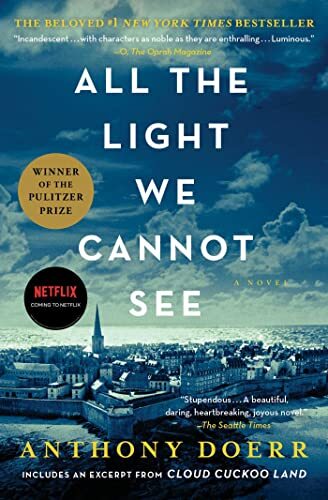
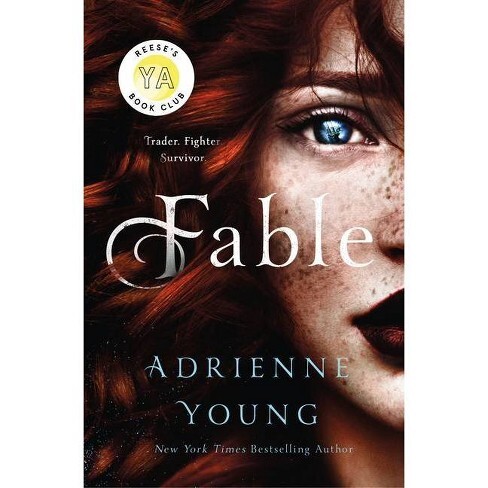
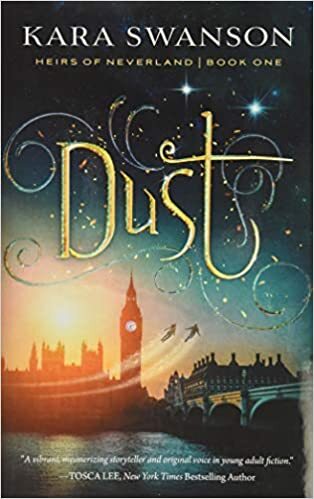
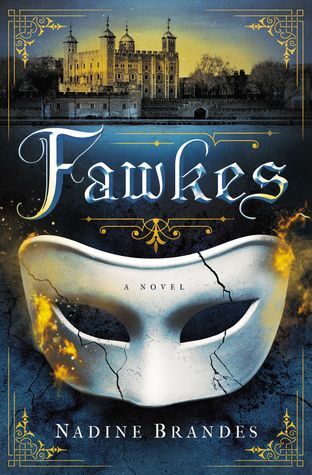
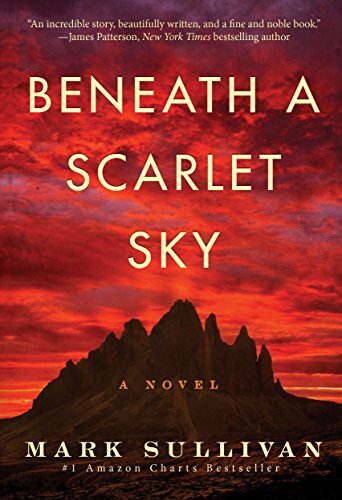

 What is your favorite book-to-movie adaptation?
What is your favorite book-to-movie adaptation? The Hunger Games. Though I’ve watched the movies several times, I just read the original three books for the first time last month, and was very impressed with how true the movies stayed to the books. Obviously some things needed to be trimmed or condensed so the movies weren’t ridiculously long, but in my opinion, the things that stayed were very accurate. Even the casting of the actors seemed to match the character descriptions in the books very well. It just made me enjoy the movies even more – which was a pleasant surprise.
If you could make any book into a movie, what would it be?It sounds very conceited to say one of mine, haha, so I won’t do that (although that’d be very cool). There are so many books that I’d like to see made into movies – it’s hard to choose one! A few that come to mind are Blank Mastermind by Rosey Mucklestone, A Time to Die, Fawkes, or Romanov by Nadine Branes, Dust by Kara Swanson, or the rest of the Narnia books that weren’t made into movies during the latest series years ago (Puddleglum, anyone?).
What was your favorite childhood book?Oh, there are so many books I considered to be my favorites growing up. I actually wrote a post about some of them here, but to recap, they include: the Magic Tree House series by Mary Pope Osborne, the Mandie series by Lois Gladys Leppard, The Boxcar Children by Gertrude Chandler Warner, the American Girl books, and Bridge to Terabithia by Katherine Paterson. And of course, when I was first learning to read, I loved Dr. Seuss!
Fantasy or sci-fi? (Or neither?)Definitely fantasy. There are a handful of science fiction books I’ve enjoyed, but in general, I consider fantasy to be my ‘comfort genre’. I love the depth and creativity usually put into the worlds and their inhabitants, and there are usually large casts of characters. As a character-loving author, I like that. I also have a great deal of respect for fantasy authors because, despite loving fantasies so much, I’ve always struggled to write them myself.
Thanks for joining me for this tag today! If you’d like to join in and share your own bookish favorites, I officially tag YOU! Whether you’d like to respond on your own blog or in the comments below, I’d love to hear from you, and learn all about your favorite stories!
Recent Posts:
The Bookish Blog TagHow (NOT) to Succeed as a WriterWriterly Resolutions Blog TagFebruary 23, 2022
How (NOT) to Succeed as a Writer
Hello and happy Wednesday!
Or perhaps it’s not simply happy, because we have a serious topic today. And that’s writing.
Being a writer is hard. It’s a lot of work, it takes a lot of time, and it often leads to a lot of stress, disappointment, and burnout. It’s a wonder that anyone chooses to do it. I’m not quite sure why anyone would (boy, they must be strange).
There are countless writers all over the world, all suffering the same fate. Some of them may actually think they enjoy it – that the impact they know they’re making on others’ lives is worth any difficulty – but purpose and satisfaction do strange things to people. Emotions like happiness and pride in a job well done can often lead people to continue doing something everyone else knows is silly, like pouring your heart onto paper.
Sane people know that writing is a road best left alone, because once someone feels they have a passion for it and starts down that path, there’s no going back. Which is why today’s topic is so important. The only way to stop this growing epidemic of writers is to spread the truth.
Stories are dangerous. Writing can be addicting. Readers may become unwaveringly loyal.
If you – like me – have become victim to this condition, your last flicker of hope lies in the advice of those who can help you not to succeed in your writing journey. Follow their direction and allow yourself to cast aside treacherous thoughts, especially ones that suggest you don’t want to stop writing after all. It may not be too late for you.
So in a desperate attempt to free you from your suffering, here are my best tips for ruining your chances of success as a writer. Best (or should I say, worst) of luck, my poor friend.
Do It All AloneIt’s common knowledge that one of the best ways to fail on your writing journey is by doing it completely and totally alone. Friends? Community? Support? What are those? If you’re serious about ruining your writing process or stopping it before it starts, you definitely need to draw back and become a hermit.
Don’t talk to anyone about your writing. Or even faster, don’t talk to anyone at all. Don’t share your ideas, keep them inside, festering until you second-guess them. If you’re stuck, don’t look for help, ask for advice, or search for how-to articles and instructions. Just muddle your way around until you’re overwhelmed, discouraged, and questioning why you ever thought you could actually write.
If you’ve already been cursed with an encouraging network of writers, don’t panic. It may not be too late for you. Stop replying to messages, sharing any of your projects, or answering their questions. If you have to, change your name, buy a cloak with an insanely-large hood, and rent a cave in the mountains for a few years, until everyone forgets about you or gives up looking. And if you’re just starting to make friends, nip that destructive habit in the bud. Scowls, sarcastic retorts, or simply silence will be your best help here.
Don’t Face Your FearsWe all have fears, usually many of them. Some large, some small. And, if you call yourself a writer, some of those fears have to do with writing. Maybe you’re scared you can’t finish a rough draft. Maybe you’re scared your work would never be good enough to publish or let others read. Maybe you’re scared that your writing is actually so bad that people would laugh (when it’s not supposed to be funny) or cry (when it’s not supposed to be sad) at it.
Perfect. Embrace those fears. Just like a community of encouraging, helpful writer friends is one of the most powerful ways to succeed as a writer, obsessing over your every writing fear is a fantastic way to ruin it. Continue to fret over your characters, typos, topics, and formatting. Convince yourself that you can never be strong enough to face your fear of receiving criticism or reviews. It’s all terrifying. Absolutely paralyzing.
And if you ever start to feel even the slightest bit of hope, the tiniest inkling of bravery, be sure to sit down immediately and make a list of all the reasons you should be scared, and why writing – and especially sharing your writing – is a horrible, terrifying idea. Contemplate every possible thing that could go wrong, and don’t let yourself fall asleep at night until you’ve mentally explored each option. Then, just don’t act on it. After all, you’ve been telling yourself you’re too cowardly to even try, right?
Hide Your Writing Until It’s PerfectYou need to be perfect. Everything you do needs to be perfect. Not one word of dialogue can be out of place, no sentence can be structured strangely, and no bit of worldbuilding can be left unexplained. Your writing is not worth sharing unless there’s not a single flaw to be found. It must be spotless.
While some people may try to convince you that perfect is impossible, and that what one person enjoys and may call perfect, another person may have different tastes and dislike, thus, ‘perfection’ is impossible – don’t listen to them. There’s only one idea of perfect that every single human has in their minds, and there’s only one possible way your writing could be good. So until it reaches that standard – until it’s perfect – it’s not worth sharing.
Hide it away where no one can see it. Don’t allow yourself to get excited and share it with even one supportive friend (you were supposed to get away from all those, remember?). As soon as you finish one chapter or round of editing, immediately start on the next one. Replot your first chapters until they are practically a new book, then start the process of rewriting and nitpicking all over again. Even one typo or awkward moment will ruin the book. And it must be perfect.
OR Assume It’s Perfect From the StartOr maybe you don’t agree with me on that last point. That’s okay, there are many ways to ruin your chances of being a successful writer. Hiding your writing until it’s perfect is just one way. If that’s too stressful for you, consider the alternate option: decide that it’s perfect just as it is. Whatever it looks like, whatever stage it’s at, it’s ready to be shared with the world.
You haven’t quite finished all the chapters yet? Or, you finished them in 32 days four years ago and haven’t looked at them since? You have the nagging feeling that you left plot holes open, story threads unwoven, and characters undeveloped? That’s okay, just decide your story is already perfect and ready to be shared with others right now. Then do it; spread your awesome writing as far as you can as fast as you can.
No matter what anyone may try to warn you about, or how sloppy your pages may look right now, don’t worry about it! If you say, it’s perfect, it’s perfect. And just think of how much faster you can ruin your chances of writing success if you don’t wait to proofread or ‘fix’ anything. The moment you finish typing the words, go ahead and upload it to the biggest websites you can find. Your reputation as a poor writer will spread rapidly. Score!
ProcrastinateThis is a very common tool of unsuccessful writers. An oldie, but a goodie, shall we say. And that’s because it works. How do you use it? Well, it’s simple. Just don’t do anything. Don’t write. Don’t think about your characters or story. Don’t type words, fill notebooks, or brainstorm ideas. Just keep telling yourself you’ll get to it later. Some day when you feel inspired. Wait for that elusive muse before you do anything.
And even if you do find inspiration, second-guess it. If it seems easy, it’s too easy. You’re probably just excited about a story idea because you got it from some show you watched or song you heard. If you used it to write with, you’d be plagiarizing. And you really don’t want to end up in jail, do you? Better just to wait until you’re a little inspired, but not so inspired that you feel like you’re actually enjoying the writing process.
Pointless social media scrolling is very helpful for this. Go down those research rabbit trails. Reread that book series or watch that movie collection for the umpteenth time. Spend time picking out the cover and title for the book you’ll (maybe) write some day, and let yourself get carried away daydreaming about all the fun you could have once you actually do something. But now is not that time. And in fact, you may never know when that time comes.
Believe me, it’s for the best.
Or, more appropriately, the worst.
Well, what do you think? Did any of these tips stick out to you? What are YOUR favorite tips for making sure your writing journey is unsuccessful? Let me know your thoughts in the comments below!
(….and in case it wasn’t obvious, this is satire. I honestly do want you to succeed in your writing journey, so please don’t take my advice right now, haha. You’ve got this, friends!)
1.You can find more writing-focused tips here.
Recent Posts:
How (NOT) to Succeed as a WriterWriterly Resolutions Blog TagMusic While Writing?February 18, 2022
Writerly Resolutions Blog Tag
Happy Friday!
As someone who enjoys setting goals to help me stay on track with my writing, I was very excited to see Raina Nightingale tagged me for this several weeks ago! Though we’re now over halfway through the second month of 2022, I rarely turn down the chance to reevaluate where I’m at in my writing, and try to find better, more realistic strategies for making progress. So here goes!
 The spiffy official tag banner!
The spiffy official tag banner!Here are the rules:
Include the official Writerly Resolutions banner in your post.Link back to the person who tagged you. If you weren’t tagged, link back to the website you found the tag on. (Again, I was tagged by Raina, who can be found, here. Thanks, Raina!)Tag at least 5 other bloggers who are also writers. You can tag as many people as you want!Ask them 5 new questions about their writing goals.Do you have a new story (or something else) you want to start writing this year?Yes! I actually have far too many new stories I’d like to write this year, including the third and (probably) final book in my Cabin Girl series. That said, I’d also like the chance to move away from the pirate stories for a little bit. I enjoy them very much, and will probably come back to that genre in the future, but I’d like to give some of my other story ideas a try too. I’m still undecided on which I’ll try first though: a medieval adventure, dystopian, or contemporary/inspirational.
Well, I’m not sure if this counts because I did write 30,000 words of it last January (2021), but I’d like to work more on my dystopian novel. Dystopian is one of my favorite genres, and I really enjoyed working on one last year – until I wrote myself into a corner and realized that I probably should have outlined something. Now I’ve realized that the story idea might actually lend itself better to a series! So while I know I won’t finish it this year, I’d like to figure out a better plan for it.
Is there something you want to do or learn related to your writing?The biggest thing I’d like to learn and do this year would be publishing my first novel! I got a nice preview into the process with publishing a short story last year, but with a full-length novel there’s so many more moving parts. It’s been a dream of mine for years though, so I’m very excited to reach that milestone! And as I’d like to continue being an indie author for many years, I’m also looking forward to learning as much as I can about it.
Is there a kind of scene you’ve never written before that you want to try?Hmmm…I’ve honestly written a lot of different kinds of scenes. And I’m not very familiar with official ‘types’ of scenes in writing either. But after looking up some examples, the ones that stick out to me as ones I’ve never tried are all romantic ones – which makes sense, as I’ve never written a romance before. However, I do have a couple of story ideas I’d like to get to, so maybe I’ll be trying those soon . . .
Is there a kind of story you want to try writing?I already answered this above in terms of genre (medieval adventure, fantasy, dystopian, contemporary, etc.), but for kinds of stories . . . I do want to try some romance, as well as a couple of stories that focus heavily on loyalty, forgiveness, and trust. Those are themes I’ve used in my writing before, but not as the main theme. And of course, at some point, I’d like to try a comedy. Humor is not one of my writing strong points, but I’d like to get better at it!
I’d like to tag the following writers:
1. Vanessa Hall
2. Kristina Hall
3. Jordyn Hadden (Indie Edits by J)
4. Joy C. Woodbury (Discipleship with Joy)
5. Grace A. Johnson
(also…YOU! There’s no way I could tag everyone I wanted to in this post, haha.)
And here are my questions for you:
1. What’s one aspect of writing you’d like to improve in this year?
2. Do you have a new type of writing you’d like to try this year? (screenplay, poetry, short stories, novels, blogging, etc.)
3. What’s your biggest writing goal this year?
4. Is there a writing habit you’d like to develop this year?
5. One year from now, how would you like to be able to describe your writing?
Well, thank you for joining me for this fun and thought-provoking tag! I really enjoyed answering these questions, and I hope you enjoyed reading through them as well.
What are YOUR writer-ly resolutions for this year? Do you have any new things you’d like to try, or goals you want to reach? I’d love to hear about them, so feel free to let me know in the comments below! Or, if you have a blog, please consider yourself tagged!
Recent Posts:
Writerly Resolutions Blog TagMusic While Writing?God of the Little Things5 Tips for Finding Motivation to Write10 Quotes About PurityFebruary 16, 2022
Music While Writing?
Hello and happy Wednesday!
I’ve been doing a lot of work on my pirate novel Cabin Girl lately, and during the process I’ve been reminded of how much music affects my writing process. It’s gotten me thinking…what are others’ thoughts on music playing while they write? What kinds? When?
Until 2020, I never wrote while listening to music. The thought really hadn’t even occurred to me. I usually wrote in spaces in my house where other family members were, and without earbuds, didn’t want to make a bunch of noise with them around. And I figured music would just be distracting anyway.
But in November of 2020, for NaNoWriMo, I wrote the sequel to Cabin Girl, and found myself listening to the Pirates of the Caribbean soundtrack every day while I wrote. It was my first experience having music playing while I worked on a book, and I actually discovered I liked it! Having the pirate-y music going (in my earbuds at this point) really helped me get into the mood of the story.
And occasionally, the perfect song started playing while I was working on a certain scene. Such as the tense and chilling soundtrack of the Kraken attacking while I wrote a shark attack. I played that song on loop until I finished the scene, and I believe it helped me picture the scene better. It was like adding the soundtrack to my writing made the movie in my head more vivid, as if it was a real movie. Call me crazy, but it helped, haha.
Ever since, I’ve enjoyed experimenting with music while I write. I’ve worked on a lot of projects since then, and have discovered some ways that listening to music does – and doesn’t – help when I’m writing. And it’s fascinating to hear what helps other writers.
One thing I’ve realized about myself, is that I need to distinguish between fiction and non-fiction in my music choices while I write. Personally, while music often helps me get into a more focused state, I’m easily distracted, and music with lyrics usually makes it way too hard to focus on my writing. Especially when I’m writing non-fiction, such as blog posts.
I think it might be because I’m trying to figure out how to express my own, personal thoughts through words, and when there are a bunch of other words going through my mind, it’s just too hard for me to concentrate. It’s harder for me to be logical and concise – which is not something I always have to be when writing fiction.
So, my go-to music while writing blog posts and responding to messages is actually this playlist. It’s a compilation of instrumental Christian songs that have been working really well for me the past few months. It helps drown out other distracting noises in my house, while still being calm, soothing, and lyric-free. Ideally, it serves as lovely white noise in the background, and I try not to get distracted by focusing on the actual melodies of the songs.
Classical music is another go-to when I want something intricate and calm, but not too distracting. Soundtrack instrumentals, however, have had to go. Soundtracks for movies and shows are designed to elicit emotion and draw you in (not that other instrumentals don’t draw emotion, but at least for me, they don’t bring out quite as strong of reactions). But when I’m writing a blog post, I’m not trying to get carried away by emotion.
So I save the soundtracks for when I’m writing fiction. And they work perfectly for this! There are so many amazing soundtracks to choose from while writing, and it works even better if you’re able to find a soundtrack from a story that resembles the one you’re working on. For example, I’ve used this compilation of random pirate-y soundtracks, songs, and shanties while I write my Cabin Girl series.
Sometimes I stick to the instrumentals, sometimes I let myself listen to the songs with lyrics…it just depends on what I’m writing and how distracted I am at the time. It also makes a difference whether I’m writing an intense, sad scene, or a chipper, bright one. I try my best to tailor the song to the scene when I know I need to get good emotion for it.
Other examples I’ve used are compilations of clean, ‘romantic’ songs when writing my medieval/romance work-in-progress, and folk song playlists for stories set in certain historical cultures and time periods. I’ve found them to be very helpful in setting the tone for the story, and helping me get immersed in the setting.
When it comes to fiction, sometimes I’ll also make a specific playlist for a story. I don’t do this every time though, just for the stories where I can find very fitting songs. Some of my books are better suited to just a single soundtrack from a movie, others are easy for me to find dozens of various songs (with lyrics and without) that set the mood for the story.
And of course, when I do put together a playlist for a book, I try to do it during times that I shouldn’t actually be writing, haha. Music while writing is wonderful, but it shouldn’t become procrastination. It’s a tool for better productivity and getting into the mood of our stories, not something that should distract us.
An added bonus that I’ve discovered for myself, is that when I listen to the same songs over and over while working on a project, my mind actually trains itself to kick into writing mode. When I first hear those songs start playing, it’s easier to start writing, because it’s become a habit. Those notes tell my mind that it’s time to start imagining.
There have been studies that back this up, and not just with music. We as humans are habitual creatures, and just about anything done repeatedly before or during our writing process can turn into a helpful routine. My brains then see or hear those ‘triggers’ we’ve put into place, and associate them with a time to be productive. Which is one reason having a writing routine can be helpful (a certain time, place, tools, etc.). Music can be part of that.
There’s no one right way to use music while writing. Every writer has a different strategy for it – and many just don’t listen to any at all. That’s okay too! Personally, there are definitely still days where I just need silence. Sometimes I’ll put in my earbuds to help drown out other noises, but I won’t listen to any music. I just want it to be quiet.
I’m one of those people that has to turn down the radio while driving if I’m lost or trying to concentrate on parking, etc. Sometimes the noise just gets to be too much while I want to focus. And that’s just fine! The bottom line when it comes to listening to music while writing is to do what works for you.
I’ve met some writers that can’t stand the thought of having music playing while they write and they’ll do anything they can to avoid it. The silence is their best writing tool. Other writers get super in-depth – with character playlists, songs specifically chosen for each scene in a book, and compilations arranged in such a way that the progression of the songs mirrors their plot. In comparison, I’m a very casual ‘musical’ writer.
In the end, I’ve discovered that I enjoy utilizing music – especially emotional soundtracks for my fiction – but I’m also okay with the silence sometimes. Definitely if my mind is already overwhelmed. To me, music is another useful part of my writing toolbox. It may not be the one I need all of the time, but I use it often enough that I’m very glad to have it.
So, what are your thoughts on listening to music while you write? Is it a part of your writing routine, or do you prefer the silence? Why or why not? If you do listen to music, do you use lyrics? Does it ever change depending on what you’re writing? And if you don’t use music, what are some other things that help you write? I’d love to hear your stories, so let me know what you prefer in the comments below!
(And if you’re so inclined, feel free to share your favorite playlists, as well!)
Recent Posts:
Music While Writing?God of the Little Things5 Tips for Finding Motivation to Write
